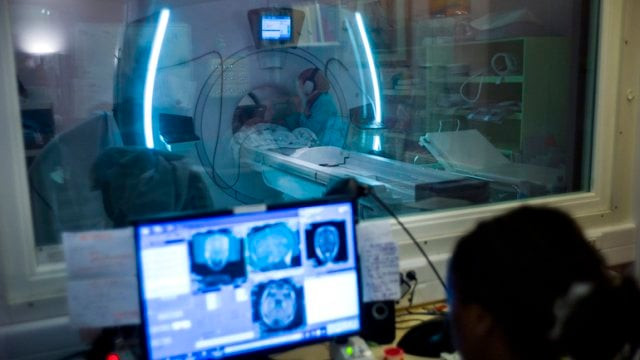'Brain tumour patients getting suboptimal care in Pakistan'
Experts highlight need for research into prevalence, treatment options, ways to improve outcomes

Lack of research has resulted in "suboptimal care" for brain tumour patients, pointed out health experts at the inaugural symposium of the Pakistan Society of Neuro-oncology (PASNO) at Aga Khan University (AKU).
PASNO comprises researchers, surgeons, oncologists, allied health professionals and basic scientists from the field of neuro-oncology.
At the symposium, held to discuss the preliminary findings of a nationwide study, these health experts highlighted that brain tumours had one of the lowest survival rates among all types of cancer in Pakistan, yet there was little research into the prevalence of the disease, success of different treatment options and ways to improve patient outcomes.
"Neuro-oncology has been largely ignored as a specialty in Pakistan," said Professor Syed Ather Enam, a neurosurgeon at AKU and PASNO's founding president. "As a result, not only do our patients continue to receive delayed or suboptimal care, but our teams' skills remain deficient. It is becoming obvious that a large number of brain tumour patients are receiving fragmented care in Pakistan."
Referring to the countrywide study under discussion, he said it would help health professionals understand the actual burden of brain tumour patients in Pakistan.
The study will gather data from close to 50 collaborating centres and will eventually include the treatment history of up to 10,000 patients.
Preliminary findings from the study suggest that while Pakistan doesn't have as many high-grade tumour cases as developed countries, brain cancer patients tend to be younger here than in the developed world.
Apart from shedding light on these findings, the speakers also discussed new developments in the field of neuro-oncology. These included precision medicine, molecular diagnosis, operative techniques and technologies and the potential of artificial intelligence (AI) to improve the diagnosis of brain tumours.
The speakers noted that at present, they had to conduct a series of tests and processes in addition to interpreting MRIs, or scans of the brain, to decide whether to operate on a patient. AI could uncover hidden information in MRI scans, often missed by professionals, and help determine which patients really need surgery, they added.
Over 50 speakers from 13 countries participated in the three-day virtual symposium, where brain tumour patients and caregivers also shared their experiences.



















COMMENTS
Comments are moderated and generally will be posted if they are on-topic and not abusive.
For more information, please see our Comments FAQ